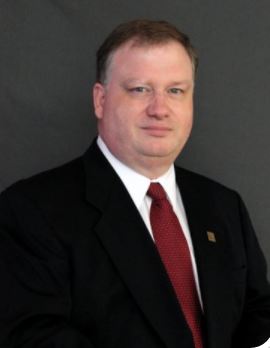The Many Roads to Federal Service at CDC
Category : PROspective
Written By: Robert Merritt
This post was originally published on March 13, 2022.
I have been fortunate to serve as an Adjunct Faculty member at RSPH since 2001 where I teach the Introduction to the US Health Care System Course (HPM 500). Adjunct faculty members are part-time faculty members who bring expertise from their professions to the classroom. In my case, my career at CDC has spanned over 34 years where my current responsibilities include tracking trends in cardiovascular risk factors and diseases and engaging in epidemiologic and health services research to support evidence-based practice, policies, and programs.
When students learn about my career at CDC, I am often asked two questions: how did you end up working at CDC and how can I get a job at CDC? The answer to the first question warrants a separate blog entry, so I will focus on the second. Based upon my experience as a hiring manager at CDC, I would like to review the most common and effective paths to landing a position at CDC:
Pre-Employment, Fellowship and Training Programs (a.k.a. “Getting Your Foot in the Door”)
There are a variety of internship, fellowship, and training opportunities at CDC (Fellowships and Training Opportunities Home Page | CDC).
CDC actively participates in two community engaged learning programs sanctioned by the RSPH, i.e., the Applied Practice Experience Program (APE) and the Rollins Earn and Learn (REAL) Program. These are important practical learning experiences and are often a prospective employee’s first experience with the agency. CDC also has an Epidemiology Elective Program (EEP) for medical students to experience applied epidemiology through a hands-on experience and mentorship by CDC subject matter expert. Only MD/MPH, MD/MSPH, MD/PHD or equivalent students are eligible (Epidemiology Elective Program | CDC). My division utilizes these three frequently. These are frequently utilized across CDC.
STEM Internships and Fellowships, typically referred to as ORISE Fellowships (Oak Ridge Institute for Science and Education) (STEM Internships and Fellowships – ORISE (orau.gov)), are frequently used by CDC and offer a good introductory experience for masters and doctoral degree job seekers. These fellowships often immerse the individual into important programmatic and priority areas at CDC. These positions often lead to opportunities to better compete for more permanent FTE positions or contractor positions. CDC recruits many fellows from this program.
The Presidential Management Fellows (PMF) Program is a two-year leadership development and training program for advanced degree candidates (i.e., Master’s, Doctoral, and Juris Doctorate). The goal of the program is for fellows to have the opportunity to work in different areas in the federal government before converting into a permanent/career-conditional position at the end of their two years. Detailed information on the PMF Program at CDC: Overview | Presidential Management Fellows (PMF) Program | CDC. Although this program is very competitive, RSPH had many PMF candidates accepted into the program last year that matched with CDC.
The Epidemic Intelligence Service (EIS) is a highly competitive, 2-year post-graduate fellowship in applied epidemiology. This CDC program is a unique combination of on-the-job-learning and service. Investigating outbreaks in the field is integral to the EIS experience (Epidemic Intelligence Service (EIS) Home Page | CDC). Emory graduates have competed well for these positions and many EIS graduates remain at CDC.
The CDC Steven M. Teutsch Prevention Effectiveness (PE) Fellowship (Prevention Effectiveness Fellowship Program | CDC) and the Public Health Informatics Fellowship Program (PHIFP) (Public Health Informatics Fellowship Program (PHIFP)|CDC) are also 2-year post-graduate fellowships. Due to the high demand for these skill sets, many graduates remain at CDC.
Finally, CDC may also consider volunteer (guest researcher) positions for students not participating in these two programs. These volunteer positions, although less common, are established by mutual agreement of the CDC office and the individual student. These are non-paid and are often a by-product of professional networking.
We intentionally utilize these as recruitment opportunities to identify future applicants for full-time employment opportunities when they graduate or complete these programs (see Full-Time Employment below).
Securing Full-Time Employment
Full-time employment in the Federal Government takes many forms with each having very specific requirements, such as citizenship, academic training, work experience, criminal history, etc. There are three main avenues for full-time equivalent (FTE) positions: Title 5, Title 42, and Commissioned Corps.
The most desired positions are permanent Title 5 and represent most of the jobs posted on the USA Jobs and CDC Websites (USAJOBS – The Federal Government’s official employment site and Careers Home | Careers at CDC | CDC). These positions often attract hundreds of applicants and may take months to fill. These websites also list temporary and term-limited positions. Make sure you note whether the positions you are applying for are permanent or term-limited (temporary). My advice is to apply to as many of these positions that you are interested in and qualified for. I cannot stress the importance of reviewing these postings carefully for the qualifications and other requirements. Follow the instructions exactly. Most, if not all, of these positions are restricted to US Citizens only.
There are also FTE positions where both US Citizens and Non-citizens are eligible. These are Service Fellowships (Title 42) based upon your level of education and professional experience. These are categorized as Distinguished, Senior, or Associate Service Fellows. There are not technically permanent but can be renewed every five years with no limit on the number of renewals. Benefits and years of service calculations are very similar to Title 5 employees. There are many federal employees that have remained a Title 42 employee their entire career.
The USPHS Commissioned Corps is one of the nation’s uniformed services — a branch committed to the service of health. Officers advance our nation’s public health, serving in agencies across the government, as physicians, nurses, dentists, veterinarians, scientists, engineers, and other professionals. CDC actively employees USPHS Commissioned Corps Officers (Explore Opportunities | Commissioned Corps of the U.S. Public Health Service (usphs.gov)).
Simply put, there are many roads to Federal service and careers at CDC. There is no one process or strategy that stands out. However, I would argue for the “PPF Approach,” i.e., patience, persistence, and flexibility. The journey is never fast and may take a different path, or combination of paths, than you first imagined.

Robert Merritt is a graduate of Washington and Lee University, Emory University and The University of the South (Sewanee) where he received academic training in sociology & anthropology, medical sociology, public health, and research methods & statistics. His research career has spanned over 30 years with positions at the Smithsonian Institution (SI), Emory University, Children’s Healthcare of Atlanta, and the Centers for Disease Control and Prevention (CDC). He is currently working as a health scientist in the Division for Heart Disease & Stroke Prevention (DHDSP) at CDC.
Featured Image by Truman Adrian Lobato De Faria on Unsplash

1 Comment
Ashley W.
March 14, 2022 at 11:25 amThis post was helpful. Thank you for the specific, detailed insight (and links)!